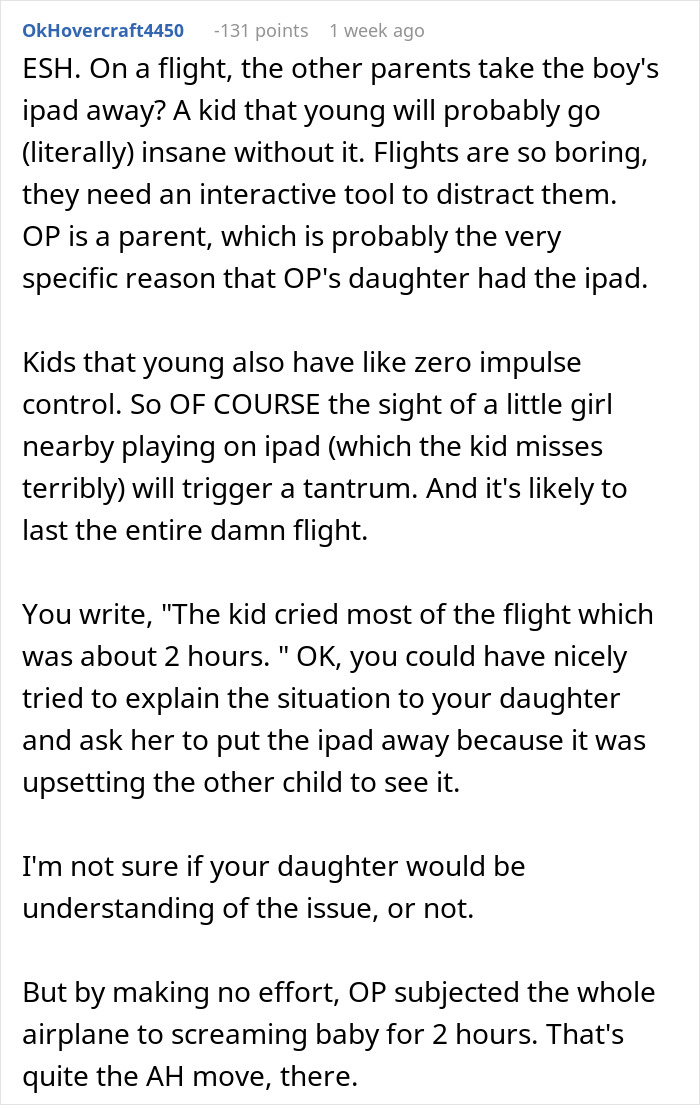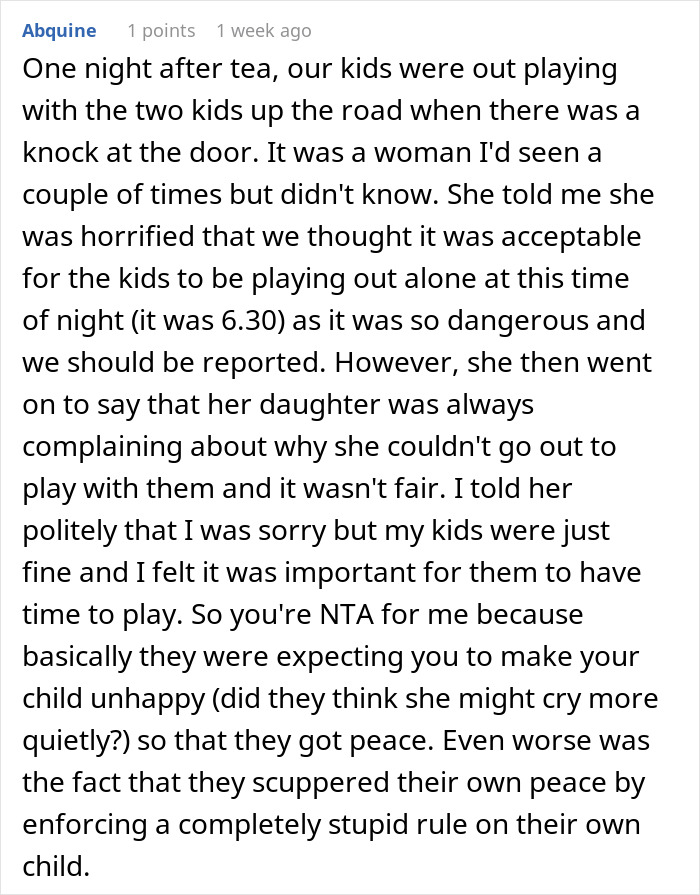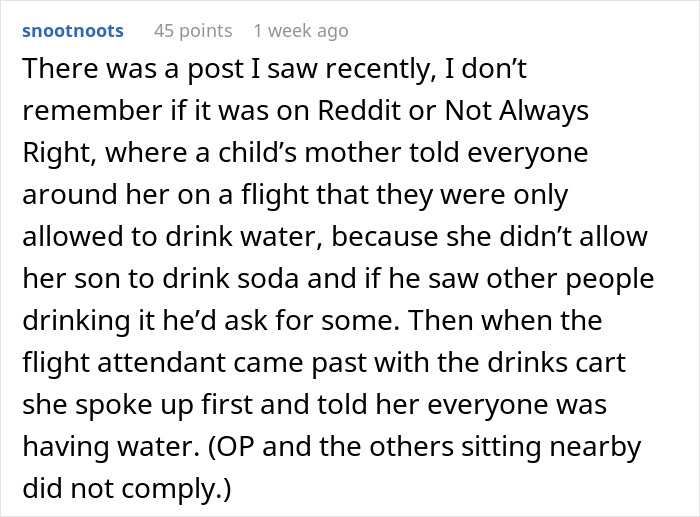Every parent has their own style, rules and goals. Some methods might work better than others, but generally, the vast majority of us stay out of other families’ business as long as a crime isn’t being committed.
A netizen shared their bizarre encounter with a family that insisted that they take away their kid’s iPad on a flight. You read that correctly, they asked a fully separate family to take away their child’s iPad because of a rule they set for their kid. We reached out to the person who shared the story via private message and will update the article when they get back to us.
Giving a kid an iPad on a flight is a normal way to keep them entertained

Image credits: APchannel / Envato Elements (not the actual photo)
But one couple was surprised when a different family wanted them to not use their own iPad
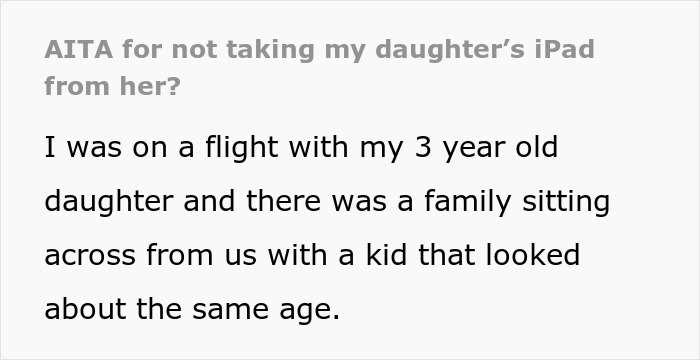

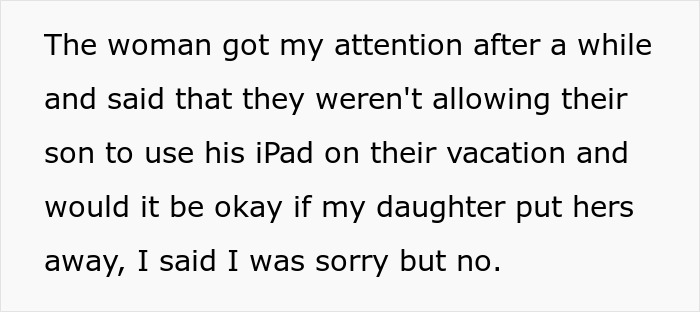

Image credits: Independent_Dream111

Image credits: Jelleke Vanooteghem / Unsplash (not the actual photo)
Parents learned that a tablet can distract a kid a long time ago
The idea of an iPad kid isn’t exactly new. After all, the first iPad came out in 2010, almost a decade and a half ago. While it has a variety of uses, many parents have found that its large screen and (relatively) lower cost compared to a smartphone, make it a great way to “entertain” their kids.
Within a year of release, some researchers had found that around 40% of toddlers had access to digital media. Naturally, the vast majority of them accessed it through a tablet, not a smartphone. Over the following years, that number jumped as high as 72%. Partially, this is because people are giving their kids access to phones earlier and earlier. In 2019, more than half of kids 11 and younger have their own smartphone. But the tablet no doubt has had a role to play in the rapid growth of digital media access.
This is not to say that replacing human contact with an Apple device is the best parenting choice, but it is a good source of entertainment. For example, young children tend to not do great on airplanes. Everyone is familiar with the horror of a child screaming and crying for hours on end during a flight, so we should be thankful that there is a device to keep the docile.
However, it’s entirely possible for a child to get so used to using an iPad that they want to bring it with them everywhere, hence the term iPad kid. Covid 19 was also a key contributor to the rise of children using iPads, as remote schooling, particularly for younger kids, often used a tablet over a computer or laptop. Ultimately though, a tablet is just a tool for education, you still need a teacher.

Image credits: Keira Burton / Pexels (not the actual photo)
Children are just as prone to screen addiction as adults
The result in some cases, are kids who simply can’t go without the device. Some parents might try to limit screen time, but others are happy enough to let their children be online for as long as they are awake. One woman went viral on TikTok filming a family at a restaurant where all the children were on iPads, playing games and watching videos out loud. Naturally, this sparked a pretty heated debate about the ethics of iPads for toddlers and what a child should be allowed to do in public.
Unfortunately, this sort of unfiltered access might, it seems, have negative long term effects. A 2023 study conducted in Japan found that toddlers who frequently have unfiltered access to electronic devices tend to develop communication and social skills more slowly than their peers. Ultimately, parents do need to strike a balance between some digital access and while also providing alternatives.
After all, in the 21st century, a person is expected to be proficient with digital devices and tools, which tends to come from experience. However, screen addiction is a very real thing. Many full grown adults spend way too much time on their phones or computers and feel unhappy when they can’t access them. Children can, easily, have the exact same issue. Toddlers will cry over almost anything, but if denying a tablet makes them break down, the parents should probably think about the implications a bit.
In this story, it would appear that the opposing family has perhaps put some limits on their child. Given the circumstances, they are using lack of iPad access for their kid as, perhaps, a punishment. This is generally better than allowing a child unrestricted, 24/7 tablet use, but the real crux of the story is the request to the person who made the post. It takes a certain kind of entitlement mixed with delusion to believe that you can just start making demands of another family because it suits you.
Many readers thought the other family was being absurd
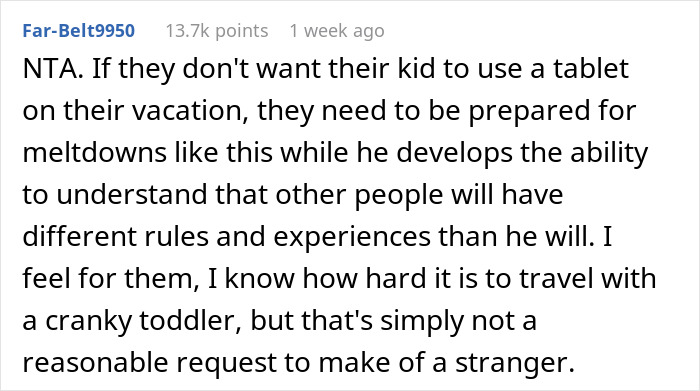
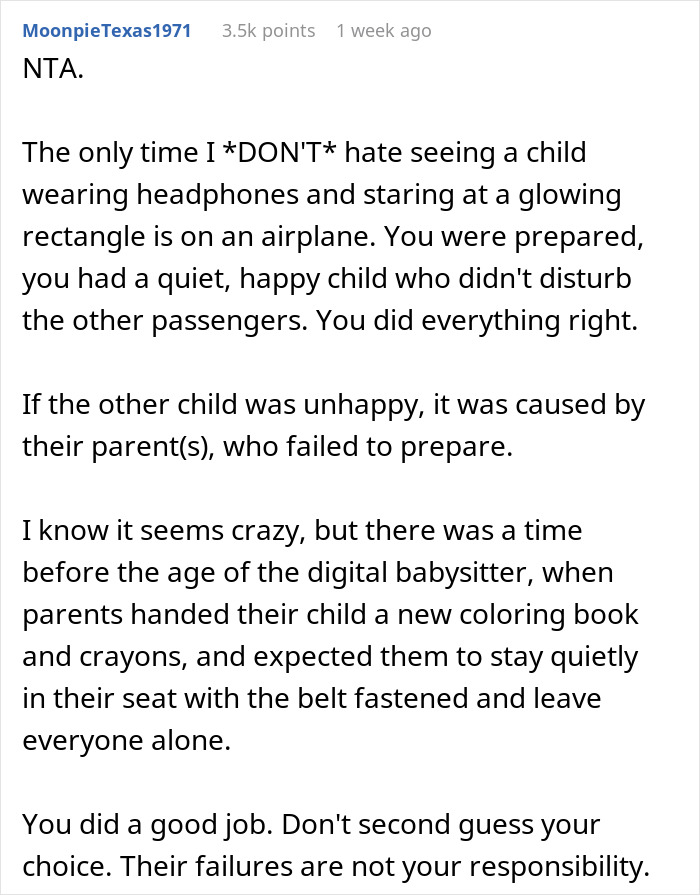
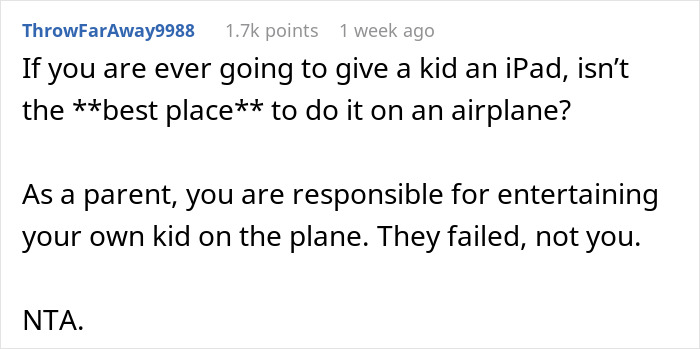

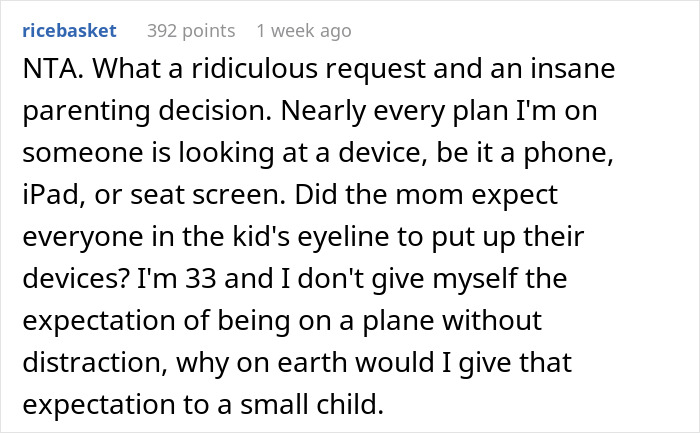



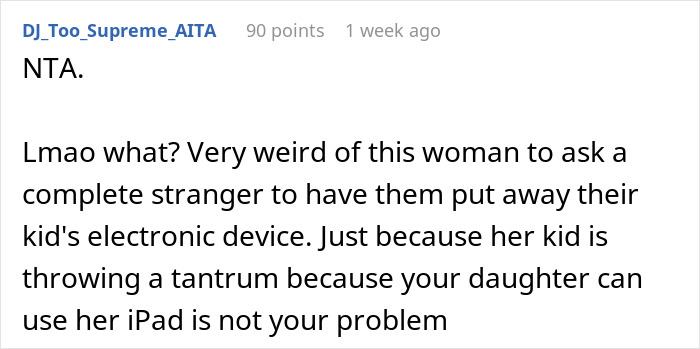

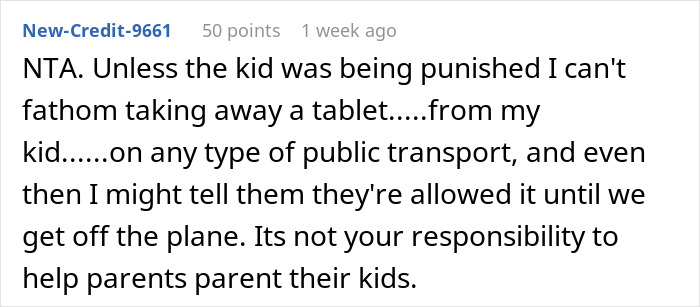
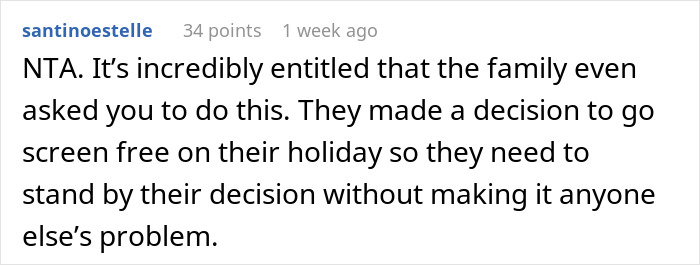
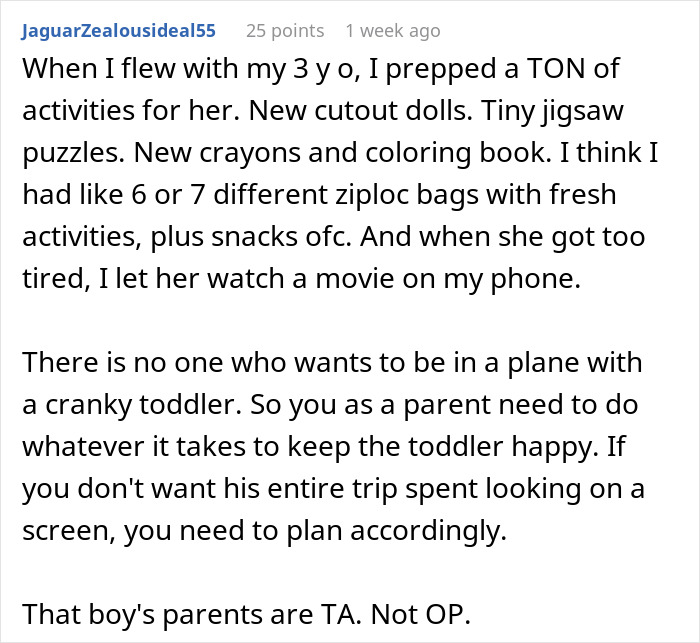
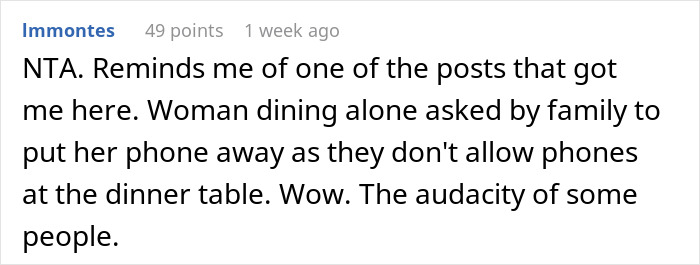
But others thought “distracting” a 3 year old with an iPad was questionable



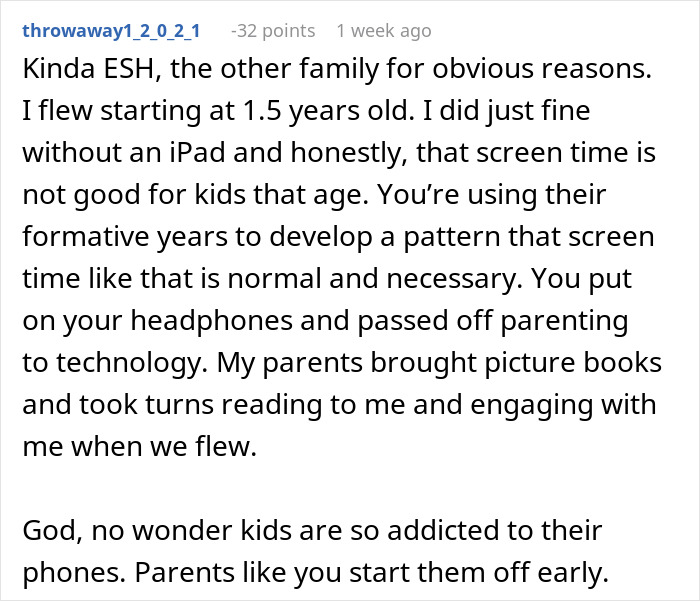

Some thought they all should have been more considerate of the rest of the passengers
